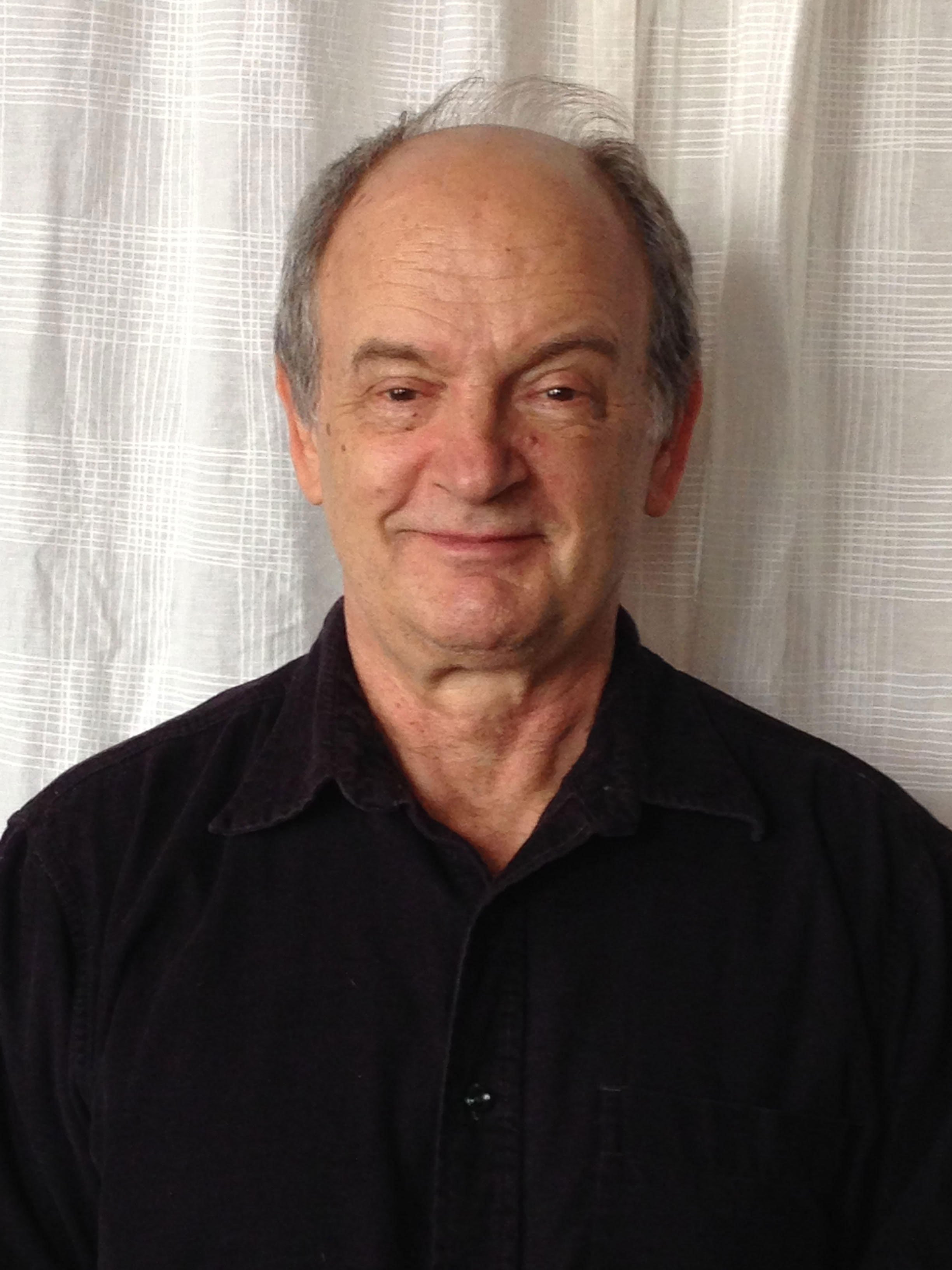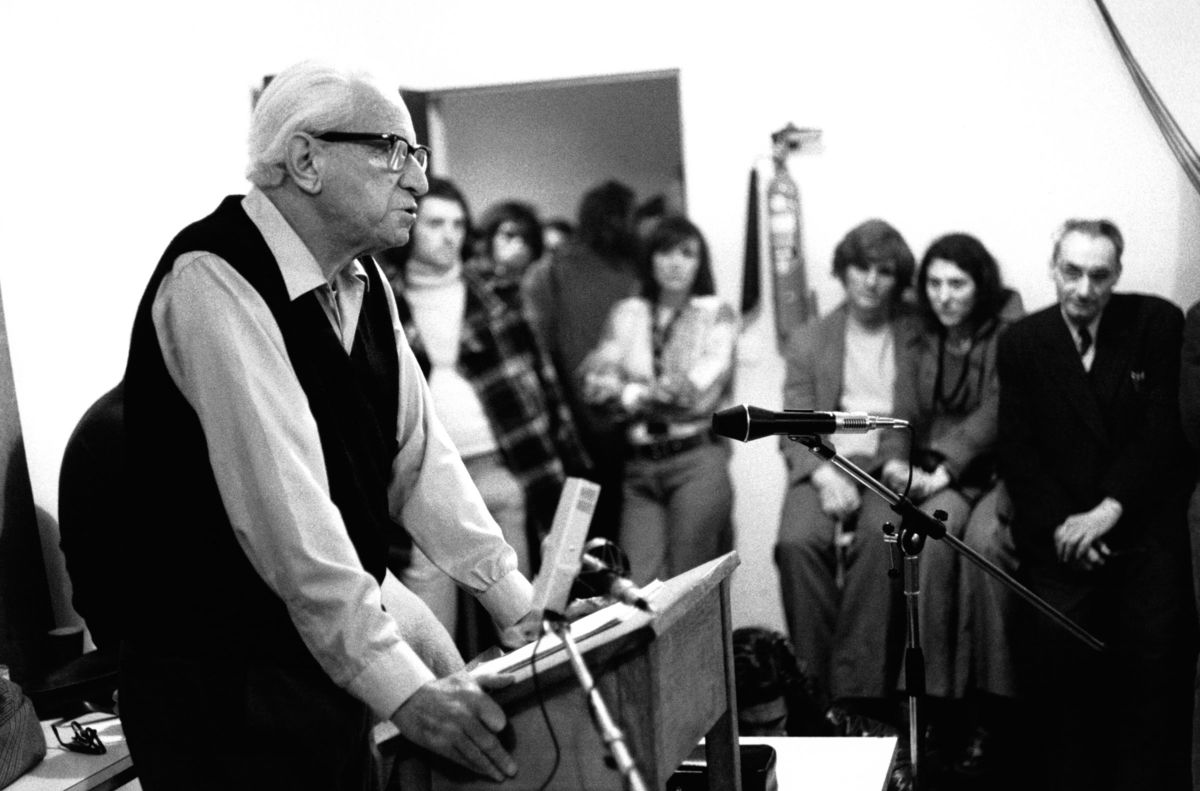Part of the Series
Progressive Picks
“Marcuse believed in ‘a universe where the sensuous, the playful, and the beautiful become the form of society itself,'” says cartoonist Nick Thorkelson, who illustrated the new graphic biography Herbert Marcuse, Philosopher of Utopia. How did philosopher Herbert Marcuse develop this belief, and what can it teach us as the U.S. flounders in political crisis? In this interview, Thorkelson discusses the work of Herbert Marcuse, his relationship to the radical movements of the 1960s and how his philosophy remains pertinent in the era of Trump.
Samantha Borek: For many people, especially younger radicals like myself, Herbert Marcuse isn’t one of the most prominent figures we learn about when we’re discovering political or philosophical theory. Who was Marcuse?
Nick Thorkelson: Herbert Marcuse was a German-American philosopher and political theorist whose ideas, emerging from the trauma of World War I and the thwarted German revolution of 1919, went on to deeply influence the radical movements of the 1960s. His writings anticipated the central concerns of Second Wave Feminism and the Occupy Movement and, unlike many “cultural Marxists” of his generation, he embraced the anti-imperialism of the movement to end the Vietnam War. (To get an idea of Marcuse’s popularity in the ‘60s, check out this video of him and his former student Angela Davis addressing a 1969 rally at UC Berkeley.) The decline in his notoriety/popularity coincided with the decline in radical dreams during the age of Reagan. My editors (Paul Buhle and Andy Lamas) and my publisher (City Lights Books) and I are trying our best to remedy that situation with this comic.
What were some of the challenges of breaking down dense philosophical theory — not just of Marcuse, but his colleagues as well — into a compelling graphic biography?
Oh Lord, what wasn’t a challenge! I have no philosophical training, so it was hard work reading and understanding Marcuse’s major writings. If readers with that deficiency are moved by this comic to try and read Marcuse, I recommend skipping around until you find one of his less technical and more “concrete” (by which I mean more poetic) passages, and then branching out from there to see how the philosophy supports the critique and the passion. The key for me was to tie his ideas to the events in his life — not just the key moments (1919 and 1968) referenced above, but other moments of disappointment: the fascist conquest of power in Europe, the failure of de-Nazification in the wake of WW II, the rise and spread of US consumer culture since the 1950s.
My understanding of the ideas of Marcuse’s colleagues owes a lot to several of Marcuse’s University of California, San Diego (UCSD) grad students, especially Andrew Feenberg and Bill Leiss, whose conversation and writings helped me get my bearings in that world. Feenberg has written great stuff about the Heidegger/Marcuse connection.
Marcuse ended up breaking away from groups he was a part of, such as the Frankfurt School, and even the schools he taught at. Why is that?

Marcuse was all but expelled from the Institute for Social Research, better known as the Frankfurt School, when Director Max Horkheimer cut Marcuse’s salary and advised him to look for work elsewhere. This was in the early 1940s, but the die was cast before that, as the group’s leading thinkers grappled in their different ways with exile in the U.S. For Horkheimer and Theodor Adorno, American culture (especially as evidenced in California) was appalling, an affront to their learning and taste, and they returned to Frankfurt as soon as they were able. For Marcuse and his Institute friends Franz Neumann and Leo Löwenthal, the disgrace of Germany by Nazism and the allure of American vitality were greater, and they chose to remain in the U.S. As for the two schools Marcuse taught at, Brandeis and UCSD, each was a new campus willing to take a chance on a known Marxist at the time he was hired, and equally willing to force him out when, in spite of his popularity with students, his radical activism became an embarrassment to them.
One-Dimensional Man is the book that made Marcuse famous, but Eros and Civilization is the first book where Marcuse really starts to break away from his teachers and other theorists. What is the “fight for Eros”? How does it relate to politics?
Marcuse wrote “The fight for Eros is a political fight” in a new political preface to Eros and Civilization when this 1955 book was reissued in 1966. And what a difference a decade makes! Between 1955 and 1966, the civil rights movement reawakened American young people to the spirit of political criticism and rebellion (i.e., politics), and in 1966, Marcuse interpreted this awakening as a demand for not only justice, but happiness: “It is their lives which are at stake, and if not their lives, their mental health and their capacity to function as unmutilated humans.”
The central argument of Eros & Civilization is that modern society forces upon us a “surplus repression” far in excess of what civilization requires, and that we are thereby separated from Eros, the life instinct. This is a political argument when you read it as the perfectly reasonable suggestion that productivity gains should be used for shorter working hours rather than to multiply profit, waste, destruction and domination.
What makes Eros & Civilization especially compelling (and especially political) to me is its critique of patriarchy. Eros/Pandora is presented as a female principle, scorned by performance-oriented male power as overly emotional and disruptive. Mari Jo Buhle’s book Feminism and Its Discontents alerted me to the impact Eros & Civilization had on the generation of rebel women who would lay the groundwork for the female liberation movement and feminism as we know it.
In the book, we see Marcuse evolve his theories from World War I up until his death. He seemed to take the opinions of his students — especially those of Angela Davis, Bill Leiss and Ricky Sherover — into heavy consideration. How did his students shape his views and work?
Marcuse credited Angela Davis with teaching him that “freedom is not simply the goal of liberation, it begins with liberation.” This is not that different from the central lesson Marcuse got from his mentor, Martin Heidegger, in the 1920s: that we understand the world by engaging with it. But Heidegger turned that idea into an embrace of Nazism and the romance of irrationality. Marcuse’s first major book, Reason and Revolution (1939), took the opposite tack by defending the rationalism of the French Revolution and the dialectical reasoning of Hegel and Marx.
Ricky Sherover died in 1988 but I was able to talk with Bill Leiss and several other students that studied with Marcuse at Brandeis and/or UCSD. My impression is that this younger generation, my contemporaries, taught him the particulars of the social struggle as they understood and experienced it. George Katsiaficas told me Marcuse attended raffish political education meetings organized by this crowd, and that while Marcuse was wryly skeptical about some of their wilder claims of revolution-making, he was with them and happy to learn from them in their practical solidarity efforts.
What was Marcuse’s idea of a “better world” and how is that still relevant in the Trump era?
Marcuse believed in “a universe where the sensuous, the playful, and the beautiful become the form of society itself.” If that sounds overly fanciful, I would associate it with simple things like this: If you’re putting up a building, why can’t it be a building you’d like to be in, or look at? When you play, why can’t you play happily with others and not angrily with the device in front of you? In other words, why not Eros? I fear that as people unite to defeat Trump and regain the hard-won protections fought for in the past, we could lose sight of this. The argument against Trump needs to be based on principles of freedom and equality, not nostalgia for a more gracious style of repression. Here’s how Marcuse put it: A “crisis offers two possibilities: neo-fascism or a free society. One cannot, for fear of the first, give up hoping and working for the second.”
Join us in defending the truth before it’s too late
The future of independent journalism is uncertain, and the consequences of losing it are too grave to ignore. To ensure Truthout remains safe, strong, and free, we need to raise $46,000 in the next 7 days. Every dollar raised goes directly toward the costs of producing news you can trust.
Please give what you can — because by supporting us with a tax-deductible donation, you’re not just preserving a source of news, you’re helping to safeguard what’s left of our democracy.
